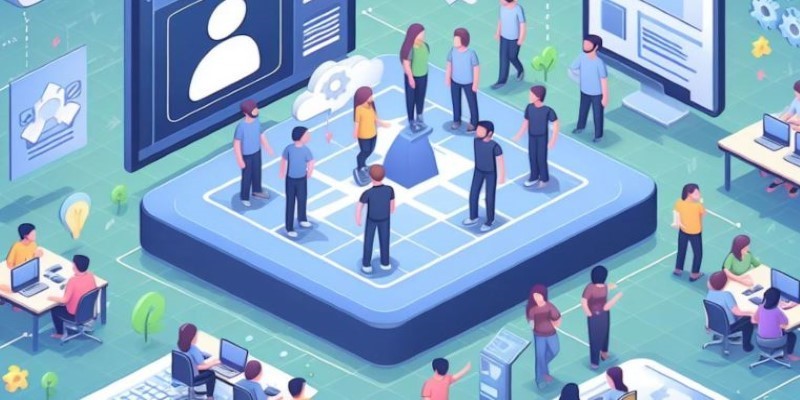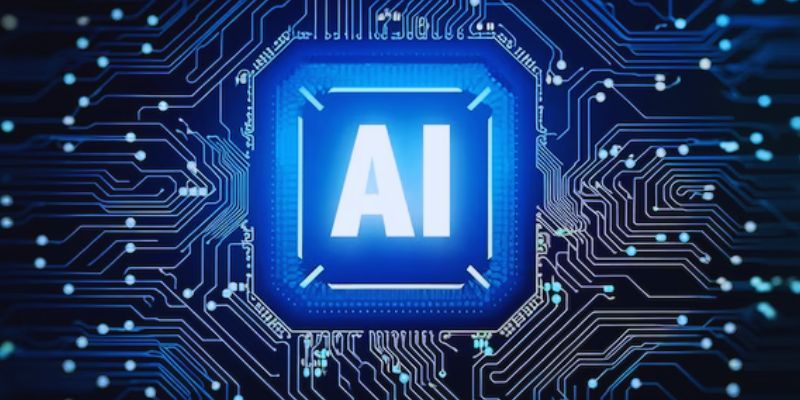The continuous advancement of artificial intelligence in industries requires organisations to make ethical development and deployment decisions their top priority. The creation of ethical AI frameworks enables organisations to develop AI technologies that follow fair standards, maintain transparent handling procedures, preserve privacy, and prevent malicious misuse and biased results. The article identifies 12 fundamental resources that organisations need to develop powerful ethical AI frameworks for responsible technological progress.
 The adoption of artificial intelligence has created wide-reaching transformations in the healthcare, finance, and entertainment industries so far. The swift spread of AI generates urgent moral matters that bring forward issues about algorithmic inequality, insufficient visibility, and confidentiality risks. An ethical AI framework creates a base to face these difficulties by executing moral principles across every AI system development, management, and implementation phase.
The adoption of artificial intelligence has created wide-reaching transformations in the healthcare, finance, and entertainment industries so far. The swift spread of AI generates urgent moral matters that bring forward issues about algorithmic inequality, insufficient visibility, and confidentiality risks. An ethical AI framework creates a base to face these difficulties by executing moral principles across every AI system development, management, and implementation phase.
Businesses that emphasise ethical AI implementation protect public faith while simultaneously reducing expenses from discriminatory data implementation and non-compliance with regulations. Global adoption of generative AI (GenAI) necessitates that enterprises establish complete ethical standards that support their pursuit of lasting organisational expansion.
As an organisation dedicated to studying artificial intelligence's social impact, the AI Now Institute conducts research that leads to proper AI management. Essential aspects that deserve attention include algorithmic accountability, biometrics, worker data rights, and privacy standards. Their report, "AI Now 2023 Landscape: Confronting Tech Power," provides organisations with essential information about developing responsible AI policies based on ethical concerns.
Located at Harvard University, the Berkman Klein Center encourages the academic pursuit of tech-related ethics and governance principles. The center shapes laws about algorithmic accountability in criminal justice, supports the creation of an AI system governance framework, and works jointly with vendors to enhance transparency measures.
The EU initiative provides market-sensitive standards that outline responsible AI practices for European territories. The committee manages technical requirements involving transparency, robustness, and accuracy for AI systems that follow EU values and legislation.
The Organization for Economic Cooperation and Development (OECD) outlines five principles for responsible stewardship of AI:
Ethical issues related to AI development require global leaders to meet at USB's forums for discussion. Their organisation's 2021 Recommendation on the Ethics of Artificial Intelligence delivers practical recommendations to balance progress and accountability alongside human rights and sustainable priorities.
Through its IEEE initiative, the organisation supplies extensive instructions focused on securing fairness, accountability, transparency, and privacy in autonomous systems operations. Through its resources, organisations gain assistance in integrating ethical guidelines based on international standards.
Organisations can use the Ethics Canvas to visualise and solve ethical problems that arise in their projects. The tool arranges concepts about risks and consequences so organisations can work together as teams while identifying possible challenges6.
The Partnership on AI establishes best practices to handle ethical issues by bringing together essential stakeholders from governments and businesses to work together. Various industries demonstrate the practical implementation of ethical frameworks through their case examples, according to research done by this organisation.
The Markkula Center at Santa Clara University stands on the university campus, where they highlight ethical framework transparency through specific measurements to determine success. Organisations should follow their guidelines, which promote rewards for employees who pursue ethical goals.
Acquiring community participation plays an essential role in developing inclusive frameworks that analyse multiple viewpoints. AI Ethics Global serves as an online platform where experts and civil society members join policymakers to detect ethical biases and unexpected ramifications of AI within their systems.
Doteveryone provides a 39-page directory containing ethical tools for product development integration that organisations can implement. These tools cover everything from risk assessments to stakeholder engagement strategies.
Studying AI4ALL organisation case examples reveals the successful management of ethical challenges. These examples demonstrate how businesses have achieved responsible innovation by maintaining the trust of stakeholders despite their quest for differentiation.
 Creating ethical frameworks needs more than guideline adoption because it requires a strategic system that unites cultural norms with technical security methods.
Creating ethical frameworks needs more than guideline adoption because it requires a strategic system that unites cultural norms with technical security methods.
Once appointed to lead ethical activities, a professional can directly inform choices across departments that remain true to company principles.
Implementing ethical frameworks requires complete execution, requiring combined resources from legal services and Information Technology units, as well as Human Resources and product development departments.
Customise ethical frameworks according to prospective risks and organisational goals by making them align with organisational procedures.
Reachable benchmarks for achievement need implementation to make employees embrace ethical behavior and receive recognition for their ethical conduct.
Ethical decision-making requires compliance with laws and moral considerations because they protect the public welfare of society.
Worldwide organisational operations face advantages and disadvantages due to the quick expansion of artificial intelligence implementation. Ethical conduct reduces risks but forms the foundation for technology acceptance among the general public while creating long-term innovation based on sustainability. The essential nature of developing responsible frameworks for generative AI now supersedes previous options because this technology dominates global industries.
Present-day organisations should employ these resources and integrate them into their plans because this enables artificial intelligence deployment according to societal values and protects their reputation across the complex digital environment.

How open-source AI projects and communities are transforming technology by offering free access to powerful tools, ethical development, and global collaboration

Explore the differences between Llama 3 and Llama 3.1. Compare performance, speed, and use cases to choose the best AI model.

Find the benefits and challenges of outsourcing AI development, including tips on choosing the best partner and outsourcing areas

Know how sentiment analysis boosts your business by understanding customer emotions, improving products, and enhancing marketing

Get a clear understanding of supervised learning, including how it works, why labeled data matters, and where it's used in the real world—from healthcare to finance

remove duplicate records, verification is a critical step, SSIS provides visual tools

Explore surprising AI breakthroughs where machines found creative solutions, outsmarting human expectations in unexpected ways

AI Hallucinations happen when AI tools create content that looks accurate but is completely false. Understand why AI generates false information and how to prevent it

Discover how Microsoft Drasi enables real-time change detection and automation across systems using low-code tools.

Know how computer vision transforms sports with real-time player tracking, performance analysis, and injury prevention techniques

Discover five powerful ways computer vision transforms the retail industry with smarter service, security, shopping, and more

Learn the nine biggest benefits of using AI in retail, from personalized experiences to cost savings and smarter decision-making